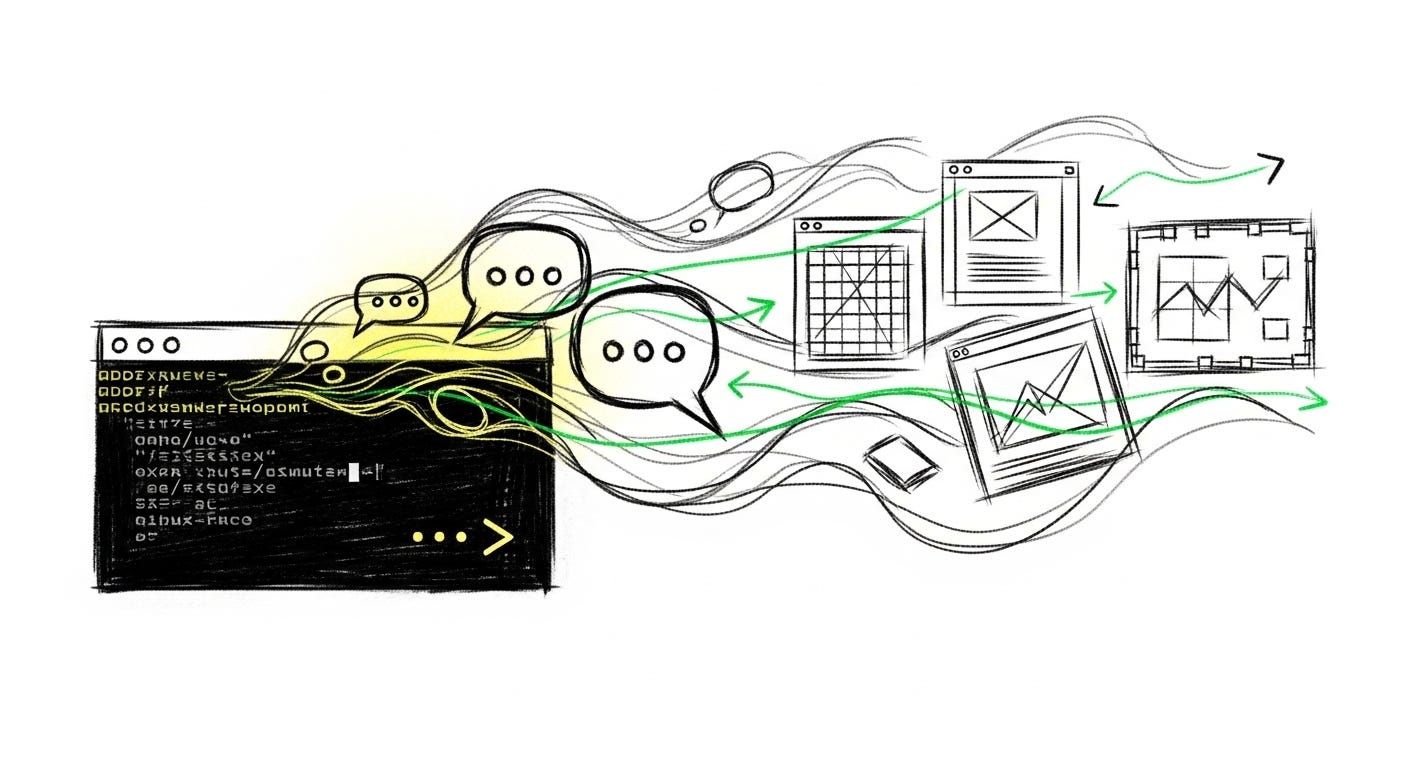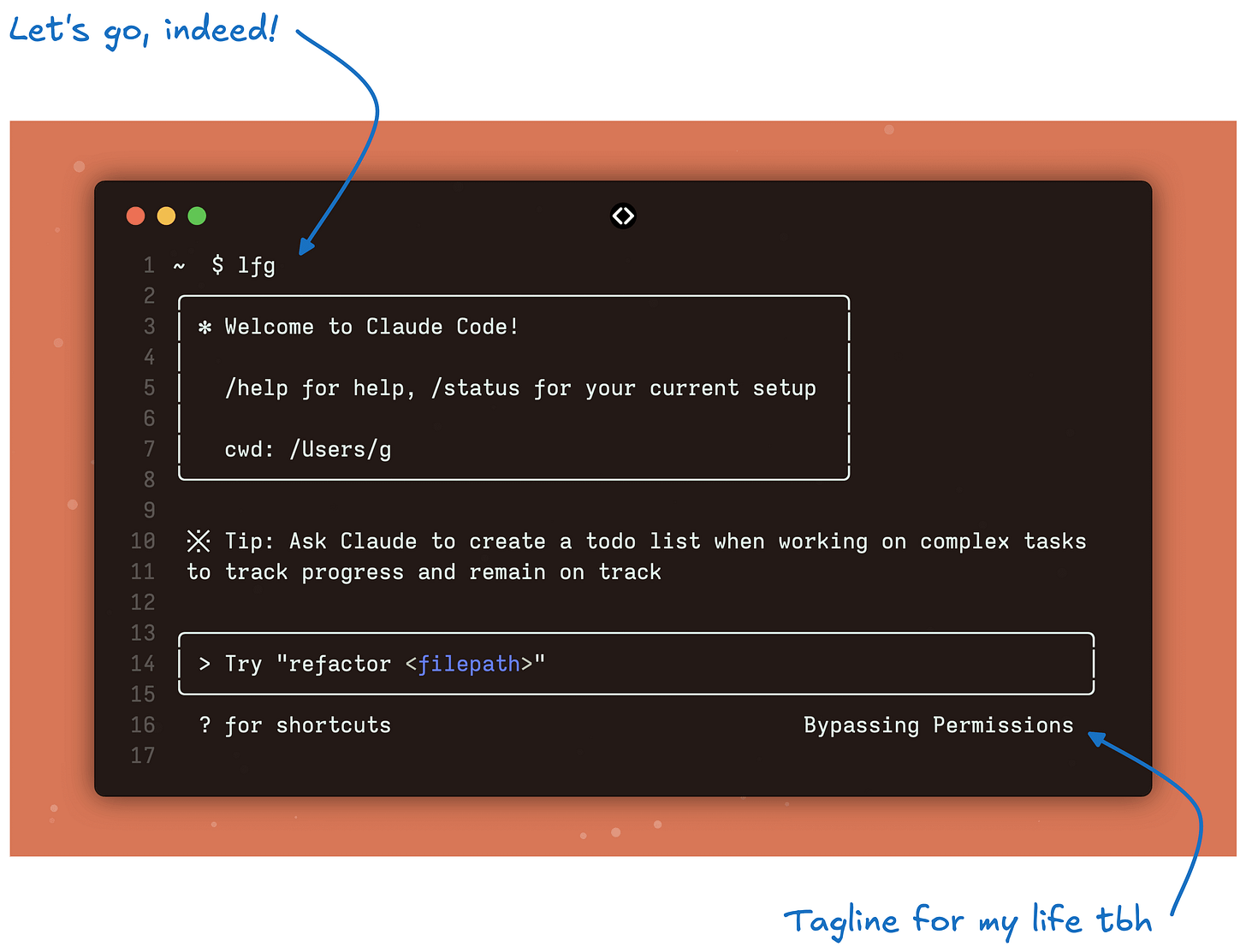Claude Code Transforms How Developers Build AI Applications
PLUS - Shadow: Open-Source Background Coding Agent for Developers
Delta Notes
Thank you for joining us for another edition of our curated AI development digest! last week brought exciting developments as the industry rallies around MCP, with Microsoft launching a comprehensive curriculum and the community already building over 1,000 servers. We're also seeing a powerful trend toward local AI solutions From Shadow's autonomous coding agent to Jan's offline ChatGPT alternative, giving developers unprecedented control over their AI workflows. Plus, don't miss the thought-provoking debate on why traditional IDEs are fundamentally broken for the AI era and need to evolve into collaborative platforms for managing AI agents.
TUTORIALS & CASE STUDIES
Budget AI Coding Workflow Using Free Tools
Estimated read time: 8 min
Developer shares practical workflow for leveraging multiple free AI models instead of expensive subscriptions. Key insight: web chat interfaces outperform IDE agents because they avoid context pollution. The author's AI Code Prep GUI tool enables selective context curation, solving the "too much or too little context" problem that makes coding agents ineffective.
MCP: The Universal Port for AI Context
Estimated read time: 8 min
Anthropic's Model Context Protocol (MCP) standardizes how LLMs connect with external data sources and tools, solving the M×N integration problem. This open protocol enables structured context validation through schema enforcement, reducing prompt injection risks while supporting complex multi-agent systems. With over 1,000 community-built servers and growing adoption, MCP represents a critical advancement for developers building production-ready AI applications.
OpenRouter Unifies 400+ AI Models
Estimated read time: 19 min
OpenRouter provides a single API endpoint to access 400+ AI models from OpenAI, Anthropic, Google, and others, eliminating the need for multiple API keys. The platform offers automatic fallbacks, unified billing, and features like structured outputs for reliable JSON responses. Developers can implement streaming, reasoning tokens, and multimodal capabilities while maintaining OpenAI SDK compatibility.
Microsoft Launches MCP Curriculum for AI Developers
Estimated read time: 15 min
Microsoft has released a comprehensive open-source curriculum for the Model Context Protocol (MCP), designed to help developers build modular AI workflows. The curriculum includes hands-on examples in C#, Java, JavaScript, TypeScript, Python, and Rust, covering everything from basic server creation to advanced topics like OAuth2 authentication and Azure integration. This resource is particularly valuable for developers working with Retrieval Augmented Generation frameworks and Agent systems, offering practical implementation strategies for standardizing AI-to-application interactions.
Build Local AI Agents with LangGraph and Ollama
Estimated read time: 15 min
Learn how to create autonomous AI agents that run entirely on your local machine using LangGraph for orchestration and Ollama for model hosting. This comprehensive guide demonstrates building a local AI agent with Mistral that can search the web and generate responses, offering complete data privacy and eliminating cloud API dependencies for enterprise applications.
TOOLS
Shadow: Open-Source Background Coding Agent for Developers
Estimated read time: 8 min
Shadow is an open-source background coding agent that autonomously understands and contributes to existing codebases. It features isolated execution environments, multi-provider LLM support, semantic code search, and automated pull request generation. Developers can deploy it locally or in hardware-isolated Kata QEMU containers for secure AI-powered code contributions.
Claude Sonnet 4 Expands to 1 Million Token Context
Estimated read time: 4 min
Anthropic's Claude Sonnet 4 now supports 1 million tokens of context, enabling developers to process entire codebases with 75,000+ lines or dozens of research papers in one request. This 5x increase unlocks large-scale code analysis, document synthesis, and context-aware agents. Available in public beta on Anthropic API and Amazon Bedrock, with adjusted pricing for prompts over 200K tokens.
LangDiff Solves Streaming Structured LLM Output Challenges
Estimated read time: 8 min
LangDiff is a Python library that addresses critical challenges in streaming structured LLM outputs to frontends. It provides intelligent partial parsing with type-safe callbacks as JSON structures build token-by-token, plus automatic JSON Patch generation for efficient synchronization. This decouples frontend UIs from LLM schemas, enabling independent evolution of backend prompts and frontend experiences.
Jan: Open-Source Offline ChatGPT Alternative for Developers
Estimated read time: 3 min
Jan is an open-source alternative to ChatGPT that runs entirely offline on your computer, giving developers complete control over their AI interactions. With 37k GitHub stars, this self-hosted AI solution leverages llamacpp and supports popular models like Llama2. Perfect for privacy-conscious developers building RAG applications or testing AI integrations without cloud dependencies.
Microsoft Introduces POML for Prompt Orchestration
Estimated read time: 3 min
Microsoft has released POML (Prompt Orchestration Markup Language), a new open-source framework designed to streamline prompt management in LLM applications. This markup language for prompt orchestration offers developers a structured approach to organizing complex prompt workflows, particularly valuable for RAG systems and multi-agent architectures. The TypeScript-based project includes a VSCode extension and has already gained significant community traction with 2.7k GitHub stars.
NEWS & EDITORIALS
Claude Code Transforms How Developers Build AI Applications
Estimated read time: 20 min
A developer shares their experience using Claude Code, a terminal-based AI coding assistant that enables "vibe coding" - creating applications through conversation without writing code. They demonstrate building a SplitWise clone in one prompt, migrating production Laravel apps, and even creating an autonomous startup that configures its own infrastructure. The tool excels at full-stack development, from database setup to UI design, making complex tasks accessible to developers.
IDEs Must Evolve for AI-Driven Development
Estimated read time: 5 min
Steve Yegge and Nathan Sobo debate whether traditional IDEs are obsolete in the AI era. Both agree that current IDE architectures are fundamentally broken for AI-powered development workflows. They envision future IDEs as collaborative platforms where developers manage AI agents like factory supervisors, requiring new tools for diff summaries and multi-project orchestration.
GPT-5 Launch Reveals AI's Practical Evolution Path
Estimated read time: 10 min
OpenAI's GPT-5 release shows AI progress continues despite mixed reviews. The author argues that AI won't suddenly achieve AGI but will follow traditional tech evolution. Key insights: AI tools enhance productivity without stunting intelligence, junior developer roles face disruption requiring industry adaptation, and current LLMs remain fundamentally different from human reasoning despite benchmark improvements.
Why LLMs Can't Build World Models
Estimated read time: 13 min
A compelling analysis demonstrating that LLMs fundamentally lack world models through concrete examples like chess and alpha blending. The author shows how language models predict text without understanding underlying concepts, making them unreliable for autonomous code management and complex reasoning tasks developers often expect from AI systems.
Open Source LLMs Are Reshaping AI Development
Estimated read time: 8 min
The open-source movement is transforming LLM development, with models like LLaMA and Mistral outperforming proprietary alternatives. For developers building RAG systems and AI agents, open-source LLMs offer unprecedented control and flexibility, enabling custom fine-tuning, local deployment, and cost-effective scaling without API limitations or licensing fees.










